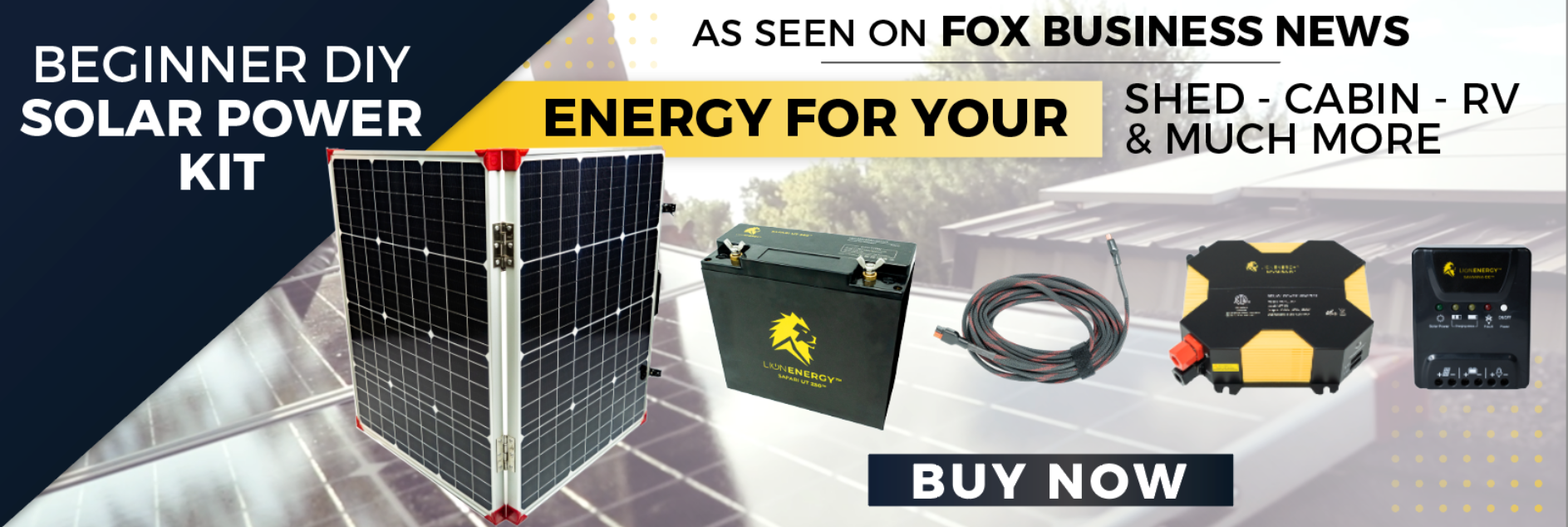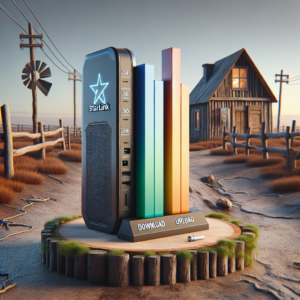
Key Takeaways
-
Solar panel warranties are essential for protecting your investment and ensuring energy security.
-
There are two main types of warranties: product warranties and performance warranties.
-
Understanding the fine print of your warranty can save you from future headaches and financial strain.
-
Choosing a warranty from a reputable manufacturer with a solid track record is crucial.
-
Know how to handle warranty claims effectively to get the most out of your solar panel system.
Why Solar Panel Warranties Are Your Safety Net
Investing in solar panels is a smart move for energy security, but it’s not just about the panels themselves—it’s also about ensuring they last. That’s where solar panel warranties come in. They’re your safety net, providing protection against defects and guaranteeing performance for years to come. Most importantly, they give you peace of mind, knowing that your investment is secure.
The Role of Warranties in Solar Investments
Think of a warranty like a superhero for your solar panels—it’s there to save the day if something goes wrong. A solid warranty covers you for manufacturing defects and ensures that your panels perform as expected. It’s a promise from the manufacturer that they stand behind their product, which is why it’s a crucial aspect of your solar investment.
Ensuring Peace of Mind in Solar Panel Performance
With a good warranty, you can relax knowing that your solar panels will continue to produce energy efficiently. It means you’re protected if the panels don’t meet their advertised performance levels. Besides that, a warranty can significantly impact the long-term return on your investment by minimizing unexpected costs related to repairs or replacements.
Decoding Solar Panel Warranty Terms
When you’re choosing solar panels, the warranty terms can seem like a foreign language. Let’s break it down. There are two types of warranties you should be aware of: product warranties and performance warranties. Product warranties cover you in case of equipment failure due to manufacturing defects, while performance warranties guarantee that your panels will produce a certain amount of electricity over time.
Performance Guarantees and What They Mean for You
Performance warranties are particularly important because they’re about what you really care about—how much energy your panels will generate. Manufacturers typically guarantee that panels will produce at least 80-90% of their rated capacity for a certain period, usually 25 years. This assurance means you can count on a consistent energy supply and savings on your electricity bill.
Manufacturer Defects and Workmanship Policies
Product warranties protect you from defects that could affect your panels’ performance. They usually range from 10 to 12 years and ensure that if something goes wrong due to the manufacturer’s fault, you won’t be left footing the bill for repairs or replacements. Therefore, always check the duration and scope of the product warranty when evaluating your options.
Understanding the Duration of Coverage
The length of the warranty is a testament to how much confidence the manufacturer has in their product. Longer warranties often indicate higher quality panels and a commitment to customer satisfaction. Remember, the longer the warranty, the more security you have in the longevity of your solar panels.
Comparing Warranty Lengths and Their Significance
When you’re comparing solar panel warranties, think of it as comparing safety nets—the longer and stronger they are, the better protected you are. A longer warranty period often indicates a manufacturer’s confidence in their product’s durability. For example, a 25-year performance warranty suggests that your panels will be a reliable source of energy for a quarter of a century. That’s a big deal when you’re planning for energy security.
Transferable Warranties: Keeping Future Options Open
A transferable warranty is like a gift that keeps on giving. If you decide to sell your property, a warranty that can be transferred to the new owner can be a major selling point. It not only adds value to your property but also assures potential buyers that they won’t have to worry about the solar panel system. Always check if your warranty has this feature because it could benefit you in the long run.
Evaluating Manufacturer Reputation and Stability
Choosing a solar panel manufacturer is like choosing a long-term partner—you want them to be reliable and trustworthy. A manufacturer’s reputation and financial stability are critical factors to consider. After all, a warranty is only as good as the company that stands behind it. Do your homework, read reviews, and check how long the company has been in business to ensure they’ll be around to honor their warranty.
Handling Warranty Claims: Steps to Secure Support
So, something’s gone wrong with your solar panels. Now what? First, don’t panic. Warranty claims are there for this exact reason. The key is to act promptly and follow the manufacturer’s process for reporting issues. Keep all your solar panel documentation in a safe place, because you’ll need it when you file a claim. And remember, the quicker you act, the quicker you can get your system back up and running.
Reporting Issues: The Right Way to Initiate a Claim
When reporting an issue, be clear and concise. Document the problem with photos and note any serial numbers on the affected panels. Contact the manufacturer or installer directly—many have dedicated support lines for warranty claims. Provide all the necessary information they request, and keep records of all your communications. This will make the process smoother and help you get the support you need faster.
Navigating Through the Claims Process
Navigating a warranty claim can feel like going through a maze, but it doesn’t have to be. Stay organized and patient. The process might involve an inspection by a technician, so be prepared to schedule a visit. If the claim is approved, the manufacturer will usually cover the cost of repairs or replacement. Always ask for a clear timeline so you know when to expect a resolution.
Getting the Most Out of Warranty Services
To get the most out of your warranty services, be proactive. Regularly monitor your solar panel system’s performance to catch any issues early on. If you encounter a problem, refer to your warranty’s terms and conditions to understand what’s covered. And don’t hesitate to ask questions—customer service is there to help you. By being informed and engaged, you’ll maximize the benefits of your warranty.
Maximizing Return on Investment with Warranties
Warranties can significantly impact the return on your investment in solar panels. A performance warranty with a low degradation rate guarantee means your panels will lose efficiency at a slower rate, ensuring more energy production over time. This translates to more savings on your energy bill. So, a robust warranty doesn’t just protect you against defects; it also ensures that your solar panels remain a cost-effective investment for years to come.
Assessing Degradation Rate Guarantees
Every solar panel loses efficiency over time—it’s called the degradation rate. What you want is a warranty that promises a low degradation rate. For instance, if a company guarantees that their panels will degrade by no more than 0.5% per year, in 20 years, you should still retain about 90% of the original efficiency. It’s these guarantees that will keep your solar panels humming and your electricity bills low.
Cost Savings Provided by Long-Term Warranties
Think of long-term warranties as your financial safeguard. They protect you from the costs of unexpected repairs or replacements, which can be quite expensive. Over the lifespan of your solar panel system, this can mean substantial cost savings. Plus, with the assurance of sustained performance, you can budget your household expenses better, knowing that your energy production is secure.
Additional Protections to Consider Beyond Warranties
Warranties are just one part of the protection puzzle for your solar panels. To fully secure your investment, consider other forms of protection like insurance and maintenance contracts. Insurance can cover damages from events like severe weather, while maintenance contracts ensure your system is always in top shape. Combining these with a solid warranty gives you the ultimate shield for your solar investment.
Insurance Options for Solar Panel Systems
Just like you insure your home or car, you can also insure your solar panels. Look for an insurance policy that covers theft, damage, and even lost revenue if your system goes down. Make sure to understand the terms and exclusions, and choose a policy that complements your warranty. This way, you’ll have comprehensive coverage that keeps your solar panels—and your peace of mind—intact.
Maintenance Contracts to Complement Warranties
While warranties cover defects and performance, maintenance contracts are like a regular health check-up for your solar panel system. They usually include routine cleaning, inspections, and preventive repairs. These contracts can help you catch issues before they become serious, ensuring your system operates at peak efficiency. It’s a proactive approach that can extend the life of your solar panels and safeguard your energy security.
Sources
-
Solar Panel Warranty Guide: What you Need to Know
-
Solar Panel Warranty – Clean Energy Reviews
-
Solar Panel Warranties: What to Know
-
Solar Panel Warranty Guide: How Long will My System Last?
-
Understanding Solar Warranties – Modernize
Data…..
Here is a table summarizing the key aspects of solar panel warranties based on the provided search results:
|
Warranty Aspect |
Description |
|---|---|
|
Product Warranty |
Typically guarantees at least 10-12 years without fail, with a growing number of premium manufacturers offering 15, 20, and even 25-year product warranties 2, 3 |
|
Performance Warranty |
Ensures that the solar panel will produce near its rated output over the life of the panel, with some manufacturers offering 25, 30, or even 25-year performance warranties 2,4 |
|
Workmanship Warranty |
Covers any physical defects that stem from the manufacturing process, such as imperfections in the frame or glass, faulty connectors, or defective backsheet 4 |
|
Labor Warranty |
Most manufacturers do not reimburse for the labor associated with replacements or repairs of their products, but some local installation companies cover maintenance and repair costs within their own warranty 3 |
This table provides a comprehensive overview of the different aspects of solar panel warranties, including product, performance, and workmanship warranties, as well as labor warranty coverage.FAQs
What should I look for in a solar panel warranty?
When examining a solar panel warranty, focus on these critical points:
-
Length of Coverage: Look for a minimum of 25 years for performance warranties and at least 10 years for product warranties.
-
Transferability: This feature allows you to transfer the warranty to a new homeowner, adding value to your property.
-
Manufacturer Reputation: Choose a manufacturer with a strong track record for stability and honoring warranties.
-
Scope of Coverage: Understand what is included, like coverage for performance, parts, and labor.
-
Claim Process: Know the steps to file a claim and the customer support available.
Remember, a warranty is as valuable as the assurance it provides, so choose wisely.
How do I transfer a solar panel warranty if I sell my property?
To transfer a solar panel warranty, first, check your warranty documentation to confirm it’s transferable. Next, inform the manufacturer or installer about the sale of your property and provide them with the new owner’s details. They may require a transfer fee or paperwork to complete the process. Make sure to do this well in advance of the property sale to ensure a smooth transition.
Can a warranty guarantee my solar panels’ energy output?
Yes, performance warranties specifically guarantee that your solar panels will produce a certain percentage of their rated capacity over time. For example, a common guarantee is that panels will perform at 80-90% of their initial output after 25 years. These warranties protect you against significant drops in energy production, which could impact your energy savings.
What happens if my solar panel manufacturer goes out of business?
If your solar panel manufacturer goes out of business, it can be challenging to enforce the warranty. That’s why it’s essential to choose a manufacturer with a solid financial background. Some warranties may be backed by insurance policies or third-party guarantees, so check for these when purchasing your panels. This provides an additional layer of protection for your investment.
Is there a difference between a performance and product warranty?
Yes, there is a significant difference between the two:
-
Product Warranty: Covers defects in manufacturing and workmanship, ensuring the panels are free from faults when they leave the factory.
-
Performance Warranty: Guarantees that the panels will produce a certain level of electricity over a specified period, usually 25 years.
Understanding the differences between these warranties is key to knowing what protection you have for your solar panels.
Investing in solar energy is a wise decision for the environment and your wallet. With the right solar panel warranty, you’re not just buying a product; you’re investing in a promise—a promise of energy security, reliability, and peace of mind for years to come. So, take the time to understand the warranties available to you, choose a reputable manufacturer, and enjoy the benefits of clean, renewable energy without worry.







